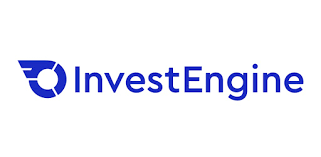Investment ISAs - also known as stocks and shares ISAs - are a popular way of saving, with almost 4 million people choosing to open a stocks and shares ISA in the 2021-22 tax year.
Let's look at why an investment ISA may be suitable for you when you consider them with your financial situation in mind.
Whether you're looking for an ISA, personal pension, or investment account, check out how these compare at Invest Engine and click the button to open your account today!
*Total limit for all ISA types
**Per person for the year 2024/25 tax year
***Per person across all investments, 2024/25 tax year
Types of ISAs
ISA stands for Individual Savings Account. ISAs are tax-efficient as any gains made in them are free of capital gains or income tax. You are given an allowance you can invest in ISAs each year, which is £20,000 for the 2024/25 tax year.
There are five types of them:
- Cash ISA
- Stocks and Shares ISA
- Innovative finance ISA
- Lifetime ISA
- Junior ISA
Cash ISAs and stocks and shares ISAs are by far the most popular. Let's look at the differences between them.
Cash ISAs
A cash ISA is a tax-free savings account and have long been a favoured option for those seeking a secure place for their money. That’s because if you open a cash ISA, you earn a set interest rate on it, fixed from the start by your chosen provider. The interest you earn over the term is paid to you, without the need to pay tax on it. For cash ISAs to be of most use, the interest rate needs to be higher than inflation so you don’t lose real value in your cash savings.
Stocks and Shares ISA
A stocks and shares ISA is an account where you can invest in a range of assets, such as stocks, international shares, bonds, ETFs, and mutual funds. Doing so gives you exposure to potentially beneficial market fluctuations, which offers the chance for higher returns than the interest rates earned on a cash ISA.
In fact, stocks and shares ISAs offer the chance of uncapped returns. Not only can these then significantly compound over the long term, the capital gains and any dividends paid remain tax free in every tax year, too.
However, you do need to remember that investing in the capital markets does come with increased risk. There is a chance that you may not get back all of what you originally invested. That being said, when building a portfolio within a stocks and shares ISA, it's possible through diversification to minimise the risks that investing in the stock market can often bring. Losing money will always be a risk, but some of that risk can be diversified away.
Which should I choose?
When deciding between which may be better for you, remember that a stocks and shares ISA carries the possibility of uncapped gains, while in comparison a cash ISA will only ever earn a set amount of interest. However, the risk with a cash ISA is generally lower as it is not subject to market volatility. Depending on your situation, one may be better for you than the other. Ultimately, you need to consider your risk tolerance, financial goals, and time horizon before making a decision.
You can invest in both types within the same tax year, too. So, for example, you could invest £10,000 in a cash ISA and £10,000 in a stocks and shares ISA.
Why choose InvestEngine?
If you do decide a stocks and shares ISA is the best way forward for you, over a regular cash savings account or a cash ISA, InvestEngine may be a good option for you to explore, whether you are a novice investor or more experienced.
We rate these features of their Investment ISA products:
- Zero ISA account fees.
- Large number of ETFs.
- Powerful investing tools.
- Free transfers.
- ISA sign up bonus.
Let's look in more detail at the benefits of picking InvestEngine as your provider:
Zero ISA account fees
InvestEngine has a competitive fee structure - it doesn’t charge you for opening an ISA account - meaning you can keep more of your money, which isn't the case for every single stocks and shares ISA provider out there. Furthermore, the fees charged on trading transactions and investing are low, though they do vary according to the type of portfolio you choose. If you opt for do-it-yourself management, you won’t pay any InvestEngine fees.
Currently, InvestEngine offers two types of portfolios: DIY or managed. If you opt for the commission-free DIY portfolio service, your only costs involve the exchange-traded funds (ETFs) in which you invest. These aren’t fees which go to InvestEngine. They are annual charges set on the ETFs themselves. Alternatively, if you opt for the managed portfolios, InvestEngine charges a modest 0.25% per year. The extra cost is the fee for managing your investments, with the same ETF annual charges applied where necessary. It means that you keep more of the gains made on your underlying assets, which over time can add up to a material amount.
When added to the tax benefits of stocks and shares ISAs, when you finally want to withdraw money, you could well have earned far more than with other savings vehicles available on the market.
Large number of ETFs
InvestEngine has a choice of 600+ ETFs on its platform. Such a wide range gives you more chance of finding a fund that aligns with your goals and investment strategy. As there are so many of them, you can gain access to global investments, specific regions and asset classes which are otherwise difficult to gain exposure to.
Furthermore, with InvestEngine, you can invest as little as £1 in any ETF they offer, thanks to fractional investing. It means you can get access to even the most expensive ETFs, so you can diversify your portfolio quickly and easily.
Powerful investing tools
If you choose to invest yourself, InvestEngine’s range of tools are incredibly supportive. Our favourites are the AutoInvest, Savings Plans, rebalancing and look through features, which we explore in more detail below. These tools allow you to make informed investment decisions, helping you not only invest in a tax efficient way, but also in a way which is smarter too.
AutoInvest and Savings Plans
If you have too much surplus cash in your account, as determined by your investment strategy, the AutoInvest feature puts it to work automatically. While it's good to hold cash as a small portion of your portfolio, having too big a cash holding can sometimes act as a drag on your returns. With AutoInvest, your funds are invested regularly for you in an automated way, so you never lose out on returns. InvestEngine's smart order technology determines appropriate trades calculated according to your strategy.
Savings Plans is a way of transferring money from your bank automatically, then Autoinvest puts it to work. It's great for adding discipline to investing.
Rebalancing
InvestEngine's regular rebalancing feature also helps with investment decisions. You can reset your DIY portfolio to your chosen asset allocation in a single click, with InvestEngine's technology generating a combination of buy and sell trades so your portfolio is realigned to your chosen weights. If you do choose managed portfolios, InvestEngine experts regularly review your portfolio so that it's well-positioned for current market conditions.
Look through
Finally, the portfolio look through feature is particularly powerful. You can quickly see what companies, sectors and geographical regions you are currently invested in. Having this feature allows you to manage your investments more easily due to the clearer transparency and insights gleaned.
Free transfers
If you already have an ISA (of any type), with another provider, you can transfer all your money, or a portion of it, to InvestEngine for free. While your current provider may charge a fee for the transfer out, InvestEngine won’t charge you for the transfer in, so you don't have to worry about InvestEngine's fee structure eating into the real value of your account.
The process is straightforward too. You only need to fill in a form on InvestEngine's website and then their transfer team will deal directly with your existing ISA provider on your behalf. If they don't have the right information, they'll get in contact with you directly. Any ISA transfers should be completed within 30 days.
ISA sign up bonus
Until 30th April 2024, if you are a new customer who successfully funds an InvestEngine ISA or transfers an ISA to InvestEngine, you will qualify for an ISA Bonus reward - provided you meet InvestEngine's terms and conditions. If you are an existing customer, you can still qualify if you transfer an ISA to InvestEngine. The sign up bonus only applies to one ISA account per customer.
The amount you earn is calculated based on your ISA portfolio's net contribution, top-ups, and transfers during the promotion period. You can earn up to £2,500 - though to be eligible, you must have a net contributed amount of £300,000.
The ISA Bonus is rewarded according to the bands in this table:
Tier | Investment amount | Bonus |
1 | £1,000 | £20 |
2 | £5,500 | £55 |
3 | £8,000 | £70 |
4 | £15,000 | £120 |
5 | £20,000 | £150 |
6 | £30,000 | £225 |
7 | £45,000 | £325 |
8 | £65,000 | £525 |
9 | £100,000 | £750 |
10 | £120,000 | £1,100 |
11 | £300,000 | £2,500 |
The net contribution means the total amount funded or transferred into the relevant account as a new customer or as an existing customer. It's good to be aware that the net contribution does not equate, therefore, to the same as your account's value.
Are stocks and shares ISAs a good idea?
While it does depend on personal circumstances, using up your entire ISA allowance every year is often a good way of saving for the future thanks to the tax advantages of these products. Cash ISAs can sometimes be appropriate, but cash savings rates won't always beat inflation or maximise possible returns. Instead, picking stocks and shares ISAs can facilitate tax-efficient saving, just as a cash ISA, but with the added benefit of unlimited growth potential.
InvestEngine offers both DIY and managed portfolios within its stocks and shares ISA, so you can invest according to your individual circumstances. The platform helps you start investing with confidence, either using investment tools to support your investment process or by using the managed portfolio service. Whether you aim for steady growth, beating inflation, or achieving specific investment goals, InvestEngine is there to help you make your money work smarter.
When investing, your capital is at risk. Tax treatment depends on personal circumstances and may be subject to change.
Image Credit: SteveBulley at pixabay






